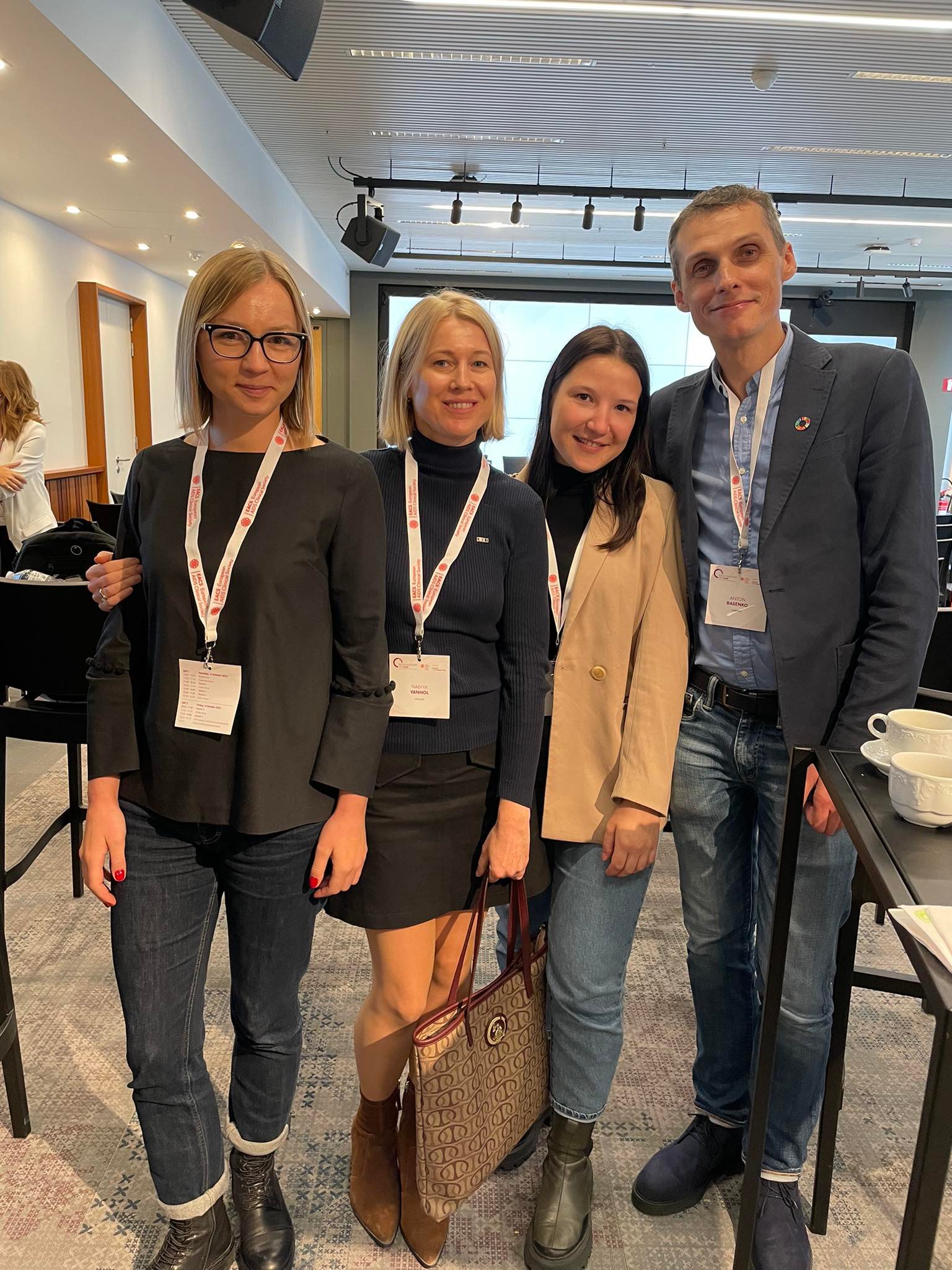
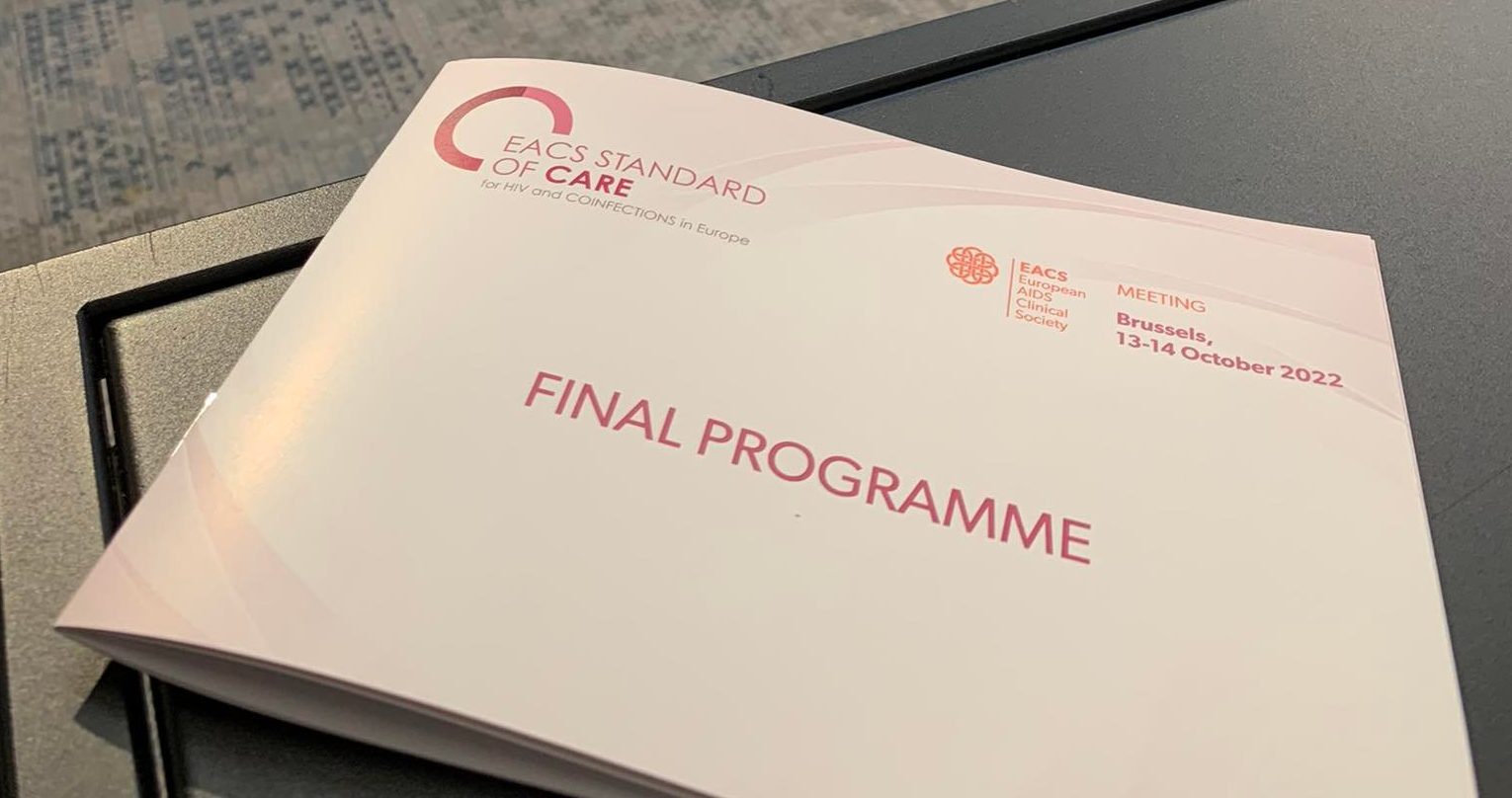
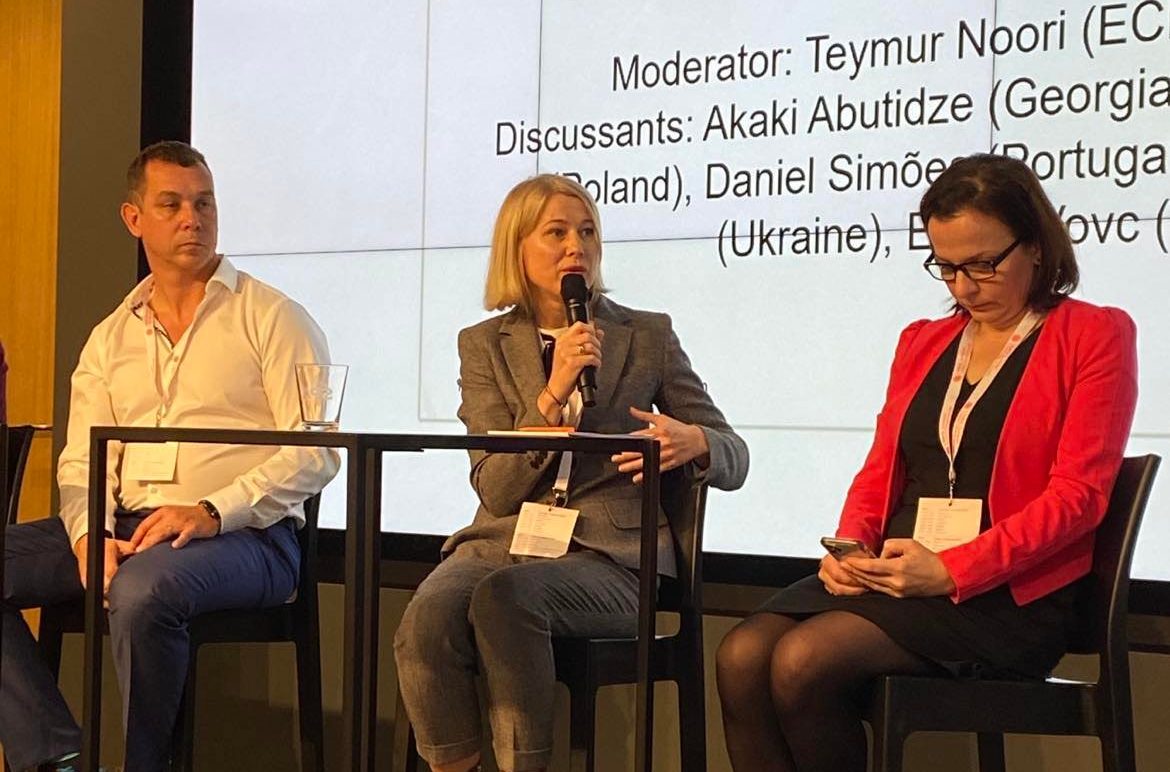


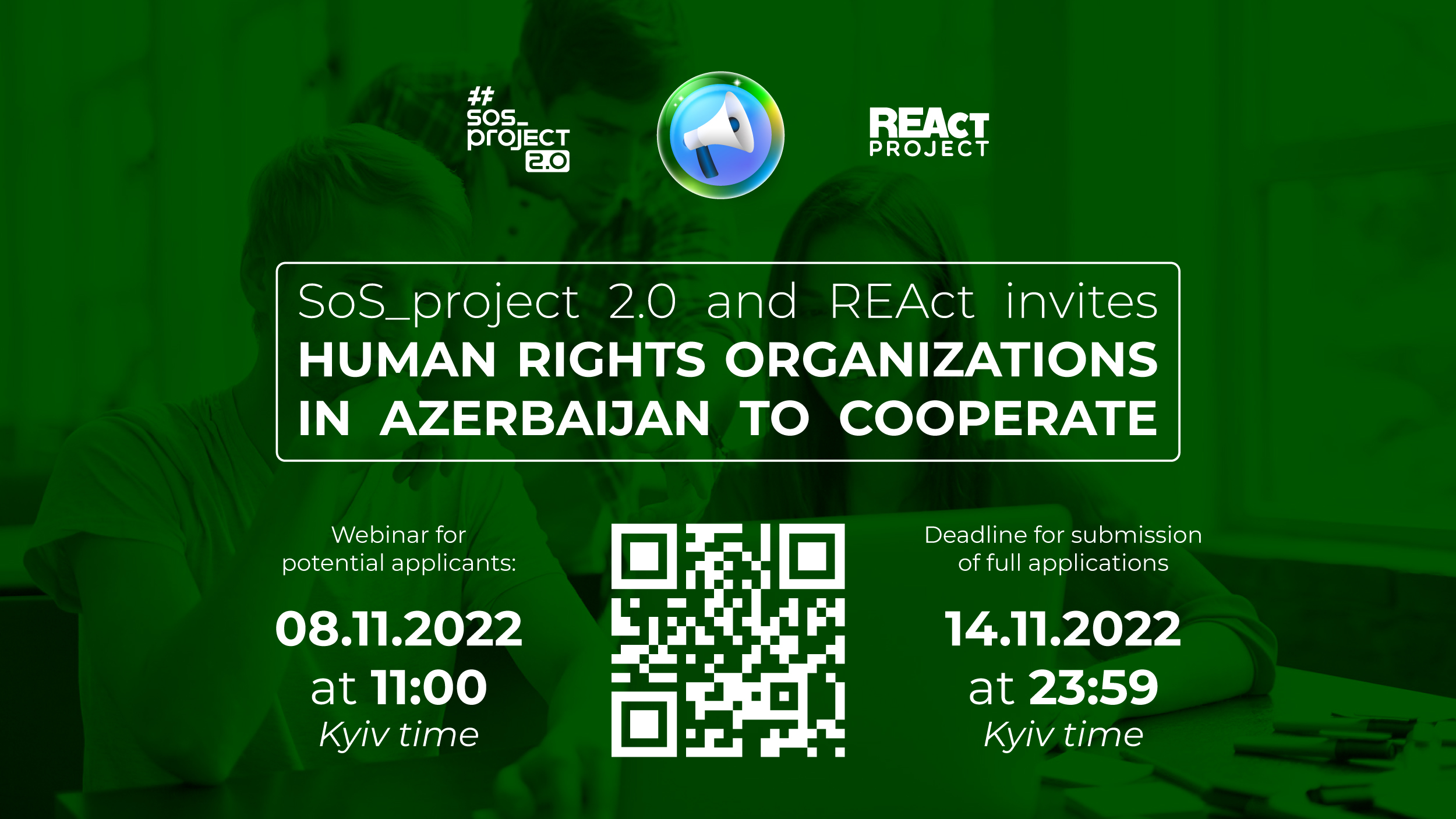
The application and supportive documents should be submitted by e-mail not later than by 14 November 2022, 23:59 Kyiv time, at the address kalyniuk@aph.org.ua .
Questions regarding the call for proposals could be submitted at the same email address, until November 8, 2022. Q&A online file is available online: After the webinars a recording will be made available on the Alliance website.
Funding under this Call for Proposals is subject to provision of a grant by the Global Fund and is conditional onsuccessful applicants entering into a Grant Agreement with Alliance for Public Health. This Grant Agreement will contain details about eligible expenses, reporting, donor requirements and other obligations that successful applicant must adhere to.
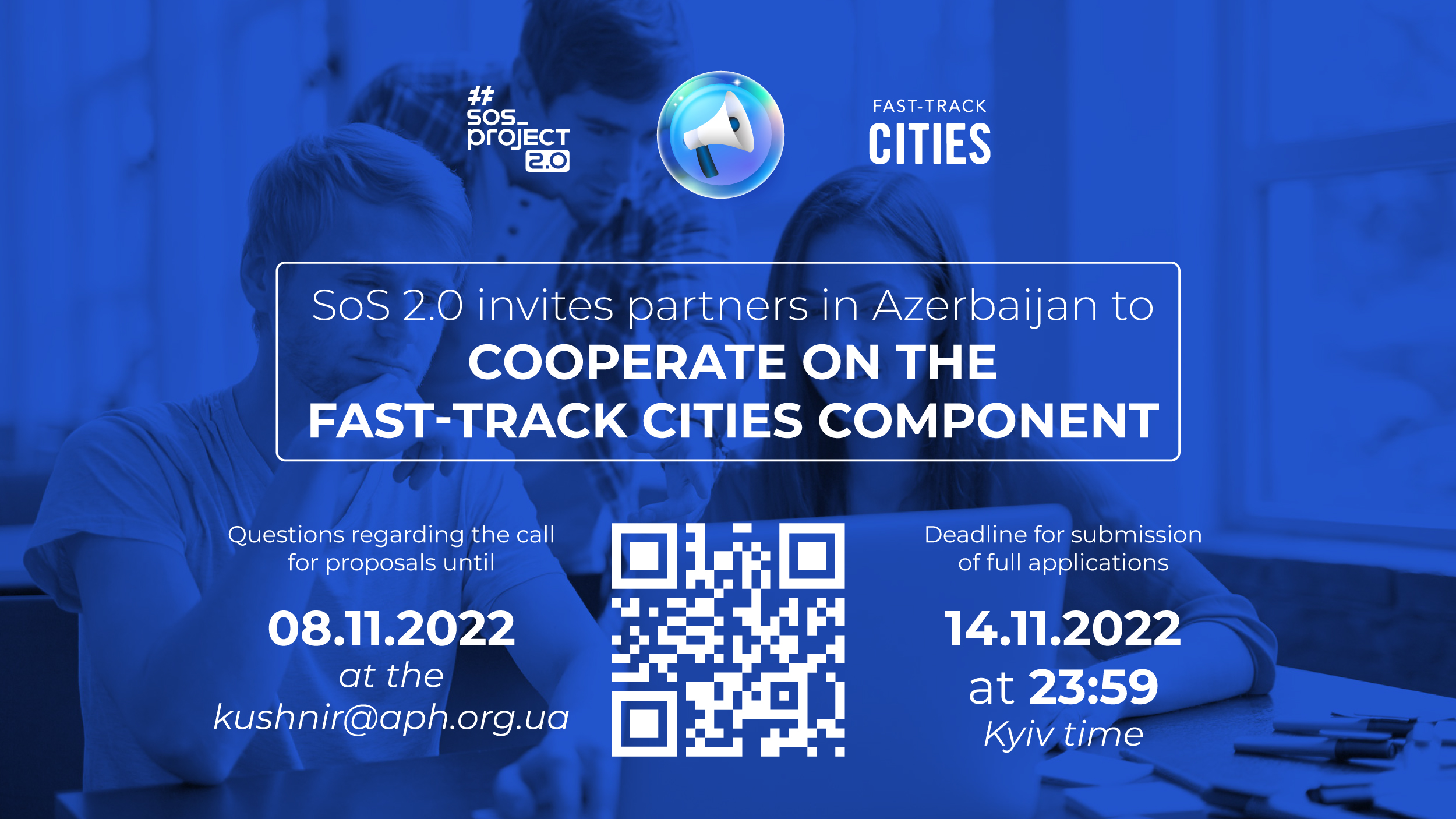
Starting January 2023, the implementation of Fast Track Cities initiative is planned for Baku within SoS 2.0 regional program.
Info on global Fast Track Cities initiative: https://www.fast-trackcities.org/about
The text of Paris Declaration: https://bit.ly/3eagEx4
Goal of this call for proposals is to select country-coordinating organization (CCO), which will be responsible for implementation of Fast Track Cities initiative in Baku in 2023-2024 and reach expected outcomes stated below.
Implementation period: 01.01.2023 – 31.12.2024
Target groups of project implementation: Mayor, Deputy Mayors, members of city parliament, heads of specialized deputy commissions, head of health department of city administration, representatives of NGOs and key populations.
FTC approach and plans for Baku in 2023-2024:
• Conduct baseline assessment on municipal response to HIV, budgeting, gaps, problems and challenges (the assessment tool will be provided by Alliance for Public Health).
• Advocacy work with Baku municipality to sign Paris Declaration on HIV by the Mayor of Baku in 2023.
• Establish municipal working group on HIV with inclusion of representatives from key affected populations.
• Make available HIV care cascade data on city level with disaggregation by KPs, age, gender.
• Develop municipal HIV program/plan aiming 95-95-95 and zero new HIV infections.
• Increase in municipal funding allocation to HIV programs – $ 500 000 cumulative increase during 2023-2024
Download all tender documents
The application and supportive documents should be submitted by e-mail not later than by 14 November 2022, 23:59 Kyiv time, at the address kushnir@aph.org.ua.
Questions regarding the call for proposals could be submitted at the same email address, until November 8, 2022.
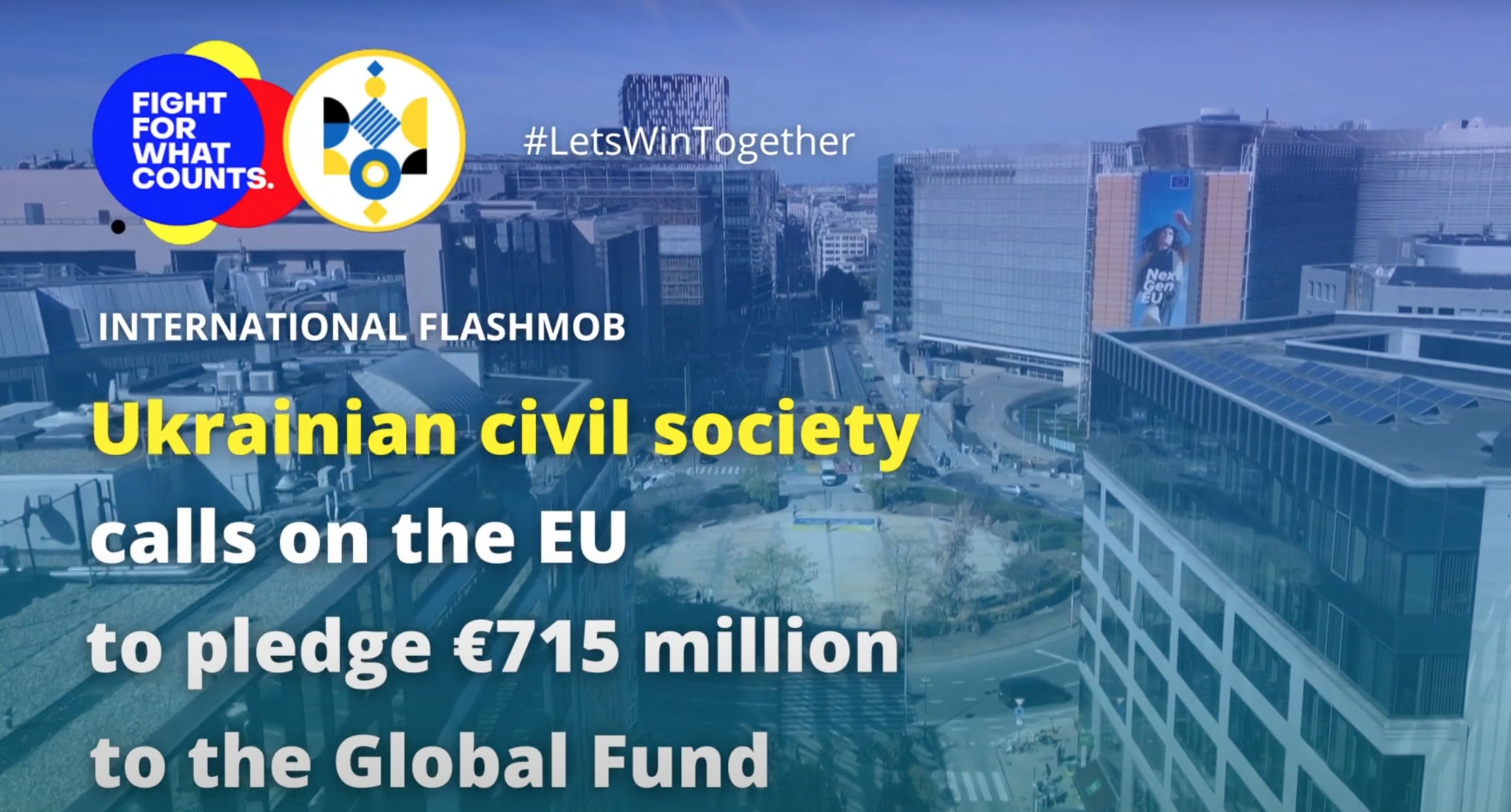
Ukrainian civil society and supporters from European organisations unfurled a giant Ukrainian flag on Square Schuman (Brussels) ahead of the State of the Union Speech which will be given by European Commission’s President Ursual von der Leyen on September 14. The flag, which aims to draw the attention of the EC President on the need to scale up investments in the fight against HIV, tuberculosis and malaria, carried the following message: “Dear European Commission, please pledge 715 million to the Global Fund. Ukrainian CSOs”.
This flag is a symbol of solidarity and shows Ukrainian civil society support for the work of the Global Fund. “When the war started on February 24, Global Fund was the first donor to react quickly and effectively. Global Fund provided additional emergency funding to support ongoing programs. With its support we saved hundreds of thousands of lives of our clients, patients and their families members. Now it’s time to save 20 million lives. The Global Fund Replenishment is not measured in $ or €. It is measured in human lives and we shouldn’t allow anyone to cross from this list!“, – said Andriy Klepikov, Executive Director, Alliance for Public Health.
The action closed an international flashmob “Let’s win together: #FightForWhatCounts”, started in Kyiv and Lviv (Ukraine), and was part of Ukrainian civil society’s efforts to advocate for a fully funded Global Fund. It was launched by more than 100 Ukrainian NGOs with the support of European partners, as a follow up to an Open letter calling on the President of the European Commission and leaders of other Global Fund donor countries to increase funding for the Global Fund by 30%.
“As we have seen from numerous examples in the recent past, a country at war is also at risk of an increased spread of HIV amongst its population. Solidarity with Ukraine should include the fight against the HIV pandemic. Global Fund, having a great track record for their work in the EECA region, should continue to be a central instrument to combat HIV in the whole region, with special attention to the Ukrainian situation”, – said Pieter Vanholder, Executive Director, European AIDS Treatment Group.
Organizers of the international flash mob ‘Let’s win together: #FightForWhatCounts’: the Alliance for Public Health, Aidsfonds, the European AIDS Treatment Group and Global Health Advocates.
Materials of the flashmob: https://bit.ly/3Bx9vzH
A new GF report: ow.ly/QLHu50KGyNz
Contacts:
– Inna Gavrylova, Alliance for Public Health, +380 96 753 8150 (/WhatsApp), gavrylova@aph.org.ua
– Kasia Lemanska, Aidsfonds, +32 489 04 48 22, KLemanska@aidsfonds.nl
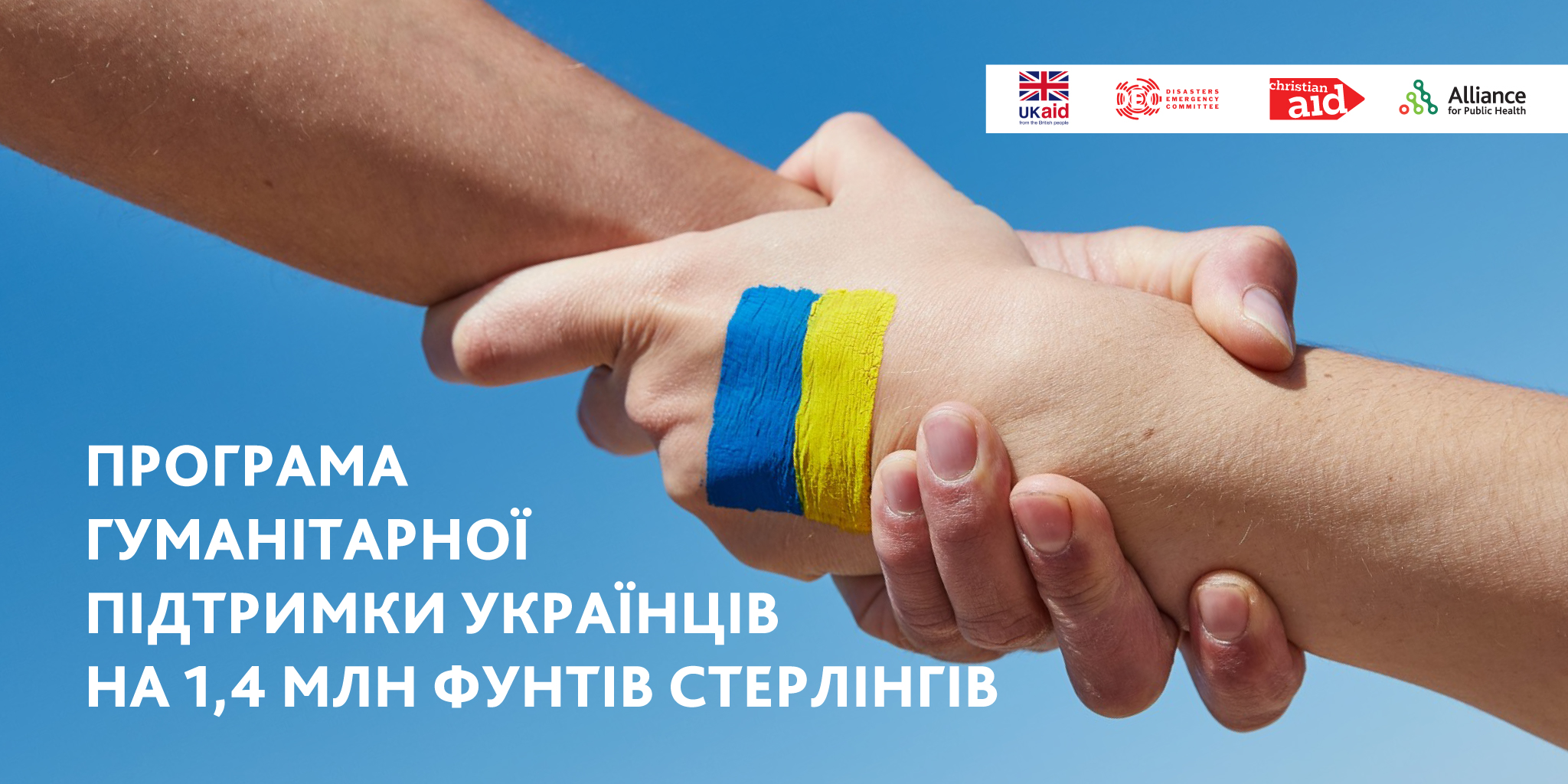
In response to the humanitarian crisis caused by russia’s military aggression in Ukraine, the Public Health Alliance, with the financial support of Cristian AID and the Disasters Emergency Committee (DEC), launched a comprehensive program of humanitarian support in Ukraine during the war and post-war reconstruction of Ukraine.
So far, the project’s first stage, which lasted 3 months from June to August, has already been successfully implemented, resulting in more than 70,000 Ukrainians receiving real assistance. The total budget of the humanitarian investment amounts to 1.4 million pounds.
The main directions are support of vulnerable communities representatives, aimed at ensuring urgent humanitarian, social, and medical needs and dignified life in crisis conditions through implementing crisis response measures.
Andriy Klepikov, executive director of the Alliance for Public Health: “In the conditions of large-scale russian military aggression, millions of Ukrainians, who were living in difficult circumstances before, found themselves on the verge of survival. A humanitarian program supported by Christian Aid directs aid to those who need it most. For those who at the moment do not receive it from the state or international organizations. In the first months of its activity, the Alliance has already supported over 75 humanitarian projects to help communities and initiative groups across the country. This is a significant investment to support and restore Ukraine, and we are grateful to our partners for their trust and support.”
It is worth noting that the program’s approach to solving the crisis situation is distinguished by the support of community initiatives that independently find ways to improve life in war conditions. “This is a focused support of people’s natural ability to overcome difficulties and help each other in crisis situations, and this stimulates people’s faith in their own strength, encourages, and deepens the self-esteem in the community. Communities are rebuilding new lives independently, focusing on what matters most. Our task is only to listen to the needs and provide comprehensive support.”
“It is difficult for me to recall how our family survived the war,” said Ms. Olha, a mother of several children from the village of Stary Bilous, which was occupied by the russians in March, about her experience of receiving help from the “Nation Revival” organization. “I can only say that we didn’t move anywhere. It didn’t work out because the middle child had an appendicitis attack in the first days of the war, and he had to be taken to the hospital. He spent 10 days there, and then the bridges were already blown up, and there was no way to leave. It was challenging and scary for the small children. They saw how their neighbors’ house was on fire and spent the night in the basement, which was not suitable for this (it was freezing). However, I don’t want to mention all this again. Thank you very much for your understanding, help, and support. My children and I started the necessary treatment.”
And further on – even more support for Ukrainians. The program’s primary focus is helping internally displaced people and people who suffered from military aggression in Ukraine.
Maryna Varban, head of the Humanitarian Support Program of the Alliance for Public Health:
“We see the terrible humanitarian consequences of russia’s military aggression not only on TV as the whole world does. We live in these conditions and understand the extreme need for emergency intervention and provision of operational assistance to Ukrainians affected by the war. This support is essential for Ukraine. We will use all our experience working with HIV/TB programs so that everyone who needs help receives it as soon as possible. We focus on supporting the work of shelters, evacuation from war zones, direct humanitarian and social assistance, psychological and legal support.”
Cases of implemented support:
Shelter at the Mayak children’s camp in Poltava, with the support of the Public Health Foundation.
In Poltava, the camp director, at her peril and risk, accommodated people who arrived from Donetsk, Luhansk, and Kherson on the area of the children’s recreation camp. 70 people were housed, and 51 remained for permanent residence. These people do not have the opportunity to return home and do not plan to move further, so they put up with the realities as they can: they have started a little farm with vegetables and chickens and are preparing preserved food for the winter. They all live in one space, divided into two zones.
Of course, people did not have enough basic things to arrange their lives: they washed items and bedding by hand, use the only one refrigerator for everyone, there was a limited number of plates, and limited access to cooking appliances.
The application of the initiative group was supported, and a refrigerator, washing machine, induction stove, electric oven, and sets of pots and pans were purchased for the shelter.
“When they brought the equipment, it was like a small holiday! The women, like little children, circled the plates and appliances. After getting permission to connect the refrigerator and washing machine with the electricity, our husbands did not have to ask too long. They quickly installed everything! Yesterday was the first day of washing!!! We made a schedule, and everyone is happy!!!”
Project “Modular Town,” Zaporizhzhia.
Since 2015, people who were forced to leave their homes in various regions of the temporarily occupied areas of Ukraine (Donetsk, Luhansk, Kherson, and Zaporizhia regions) have been living in the modular town. In 2022, the town’s population grew several times, accepting new families who did not want to go further. Solving fundamental household problems of living is, of course, an urgent component of improving the quality of life.
Installation of stationary dryers on the territory of the Modular town situated on Steshenko st., 18 will help improve the level of life, the participation of residents in the project’s development, and its implementation will help integrate and unite those who have already lived in the town since 2015 with those who have just settled in it.
Lyudmyla, volunteer coordinator of the town:” We learn “on the go”, we ask a lot of questions because none of the members of our group has experience in this kind of work. We were not ready for war, nor were millions of our compatriots. But today, we continue to expand the range of targeted assistance to internally displaced persons based on our modular town. However, sometimes, some such problems and issues cannot be solved together with the state – either there are no laws, or there are no instructions, or it is not on time. And here, volunteers or organizations like BO BF “Hope” come to the rescue and help us find a solution. And this time, they helped us with the development of the project, financing, and implementation of the installation of dryers on the territory of the town.”
About the Public Health Alliance
It should be noted that the Public Health Alliance team has more than 20 years of experience in implementing access programs and supporting treatment sustainability in HIV/TB programs. Today, our experienced specialists are working to assist those who need it most.
In particular, several initiatives and programs have been launched since the beginning of the war. The Humanitarian Convoy began its work, transporting more than 500 tons of cargo. A “special” long-distance flight was implemented for the transportation of 1.2 million tablets for the RRT programs, purchased by the Ministry of Health of Ukraine and the Public Health Alliance, which will be delivered to 19 medical institutions in 6 regions of Ukraine for patients who were on the verge of interruption of treatment due to the war. The international HelpNow HUB emergency support program has been launched for Ukrainians who were forced to go abroad. More than 9,000 Ukrainians from 31 countries received assistance. Programs for prevention and access to treatment for HIV, tuberculosis, hepatitis, and ART have been adapted, and psychological support programs, etc., have been expanded. More information on wartime work in Situation Reports >>>
Additional information about the Humanitarian Program is available here >>>
Contact: Maryna Varban, project manager Varban@aph.org.ua

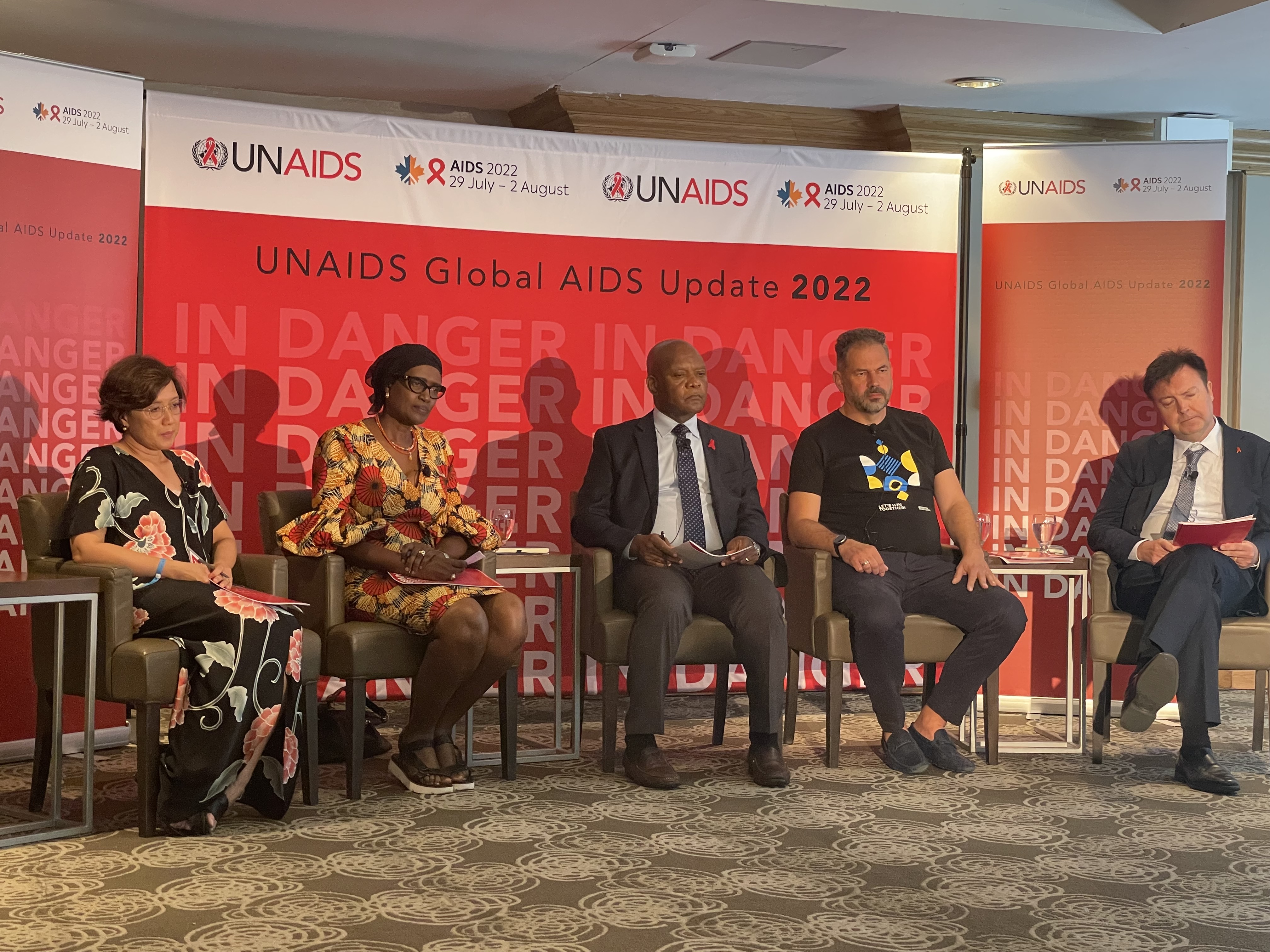
The Joint United Nations Programme on HIV/AIDS (UNAIDS) launched its annual report on the state of the global HIV response today ahead of AIDS 2022, the 24th International AIDS Conference, in Montreal, Canada, at a live event also livestreamed at www.unaids.org.
“For the 1st time UNAIDS releasing a global AIDS report with such alarming title – “In Danger”. This report is call for action. “I’m from Ukraine, the country facing Russian invasion. And for us it’s absolutly clear that being “In Danger” requires immediate and strong actions,” Andriy Klepikov, Executive Director of the Alliance for Public Health, said. “The report shows the fundamental mismatch. While we facing increase in new HIV infections, funding for HIV is decreasing. It is the exact time to highlight that future of AIDS response in the coming years will depend on successful The Global Fund replenishment, on raising at least 18 billion USD. Fight for what counts – this is true priority; this is very appealing to all of us in Ukraine. The report highlights the role of key populations. 70% of new HIV infections linked to key populations. That is where the funding should go. Invest times more in programs for people who use drugs, SW, MSM, transgender people.We are hoping for increased PEPFAR funding, and of course, funding to UNAIDS.”
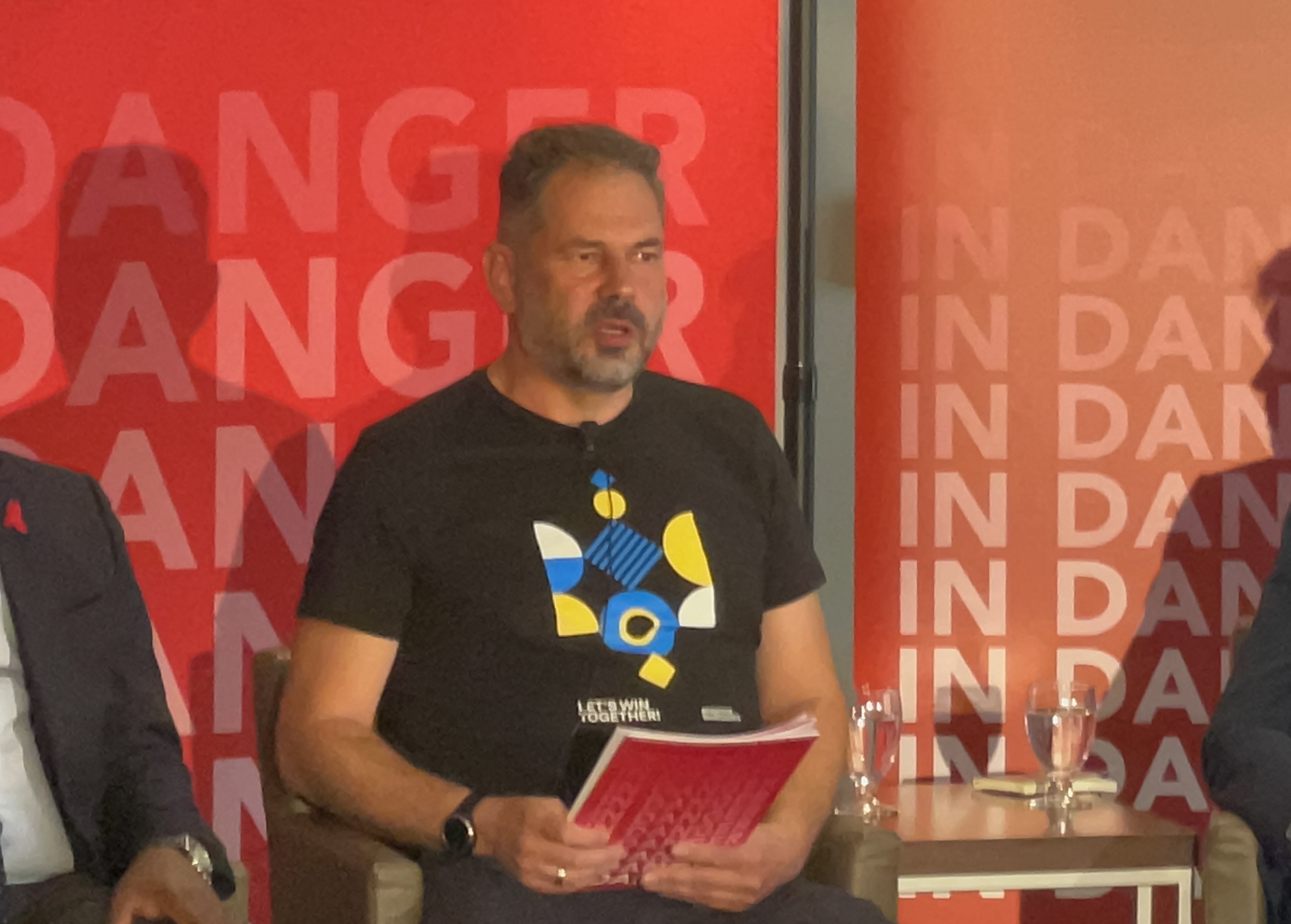
Russian war in Ukraine brought incredible challenges. 100 000 PLWH used to leave in the territories directly affected by the war. We have 15 million IDPs and war refugees. UN forecasts are terrible – 9 out of 10 Ukrainians will face poverty by the end of the year. GDP will fall by 30%
Loses for health system are so severe. At the same time war demonstrated that in situation of the destructed health infrastructure civil society and community are the backbone for HIV response.
“In many difficult situation, when others say “no” civil society say “yes”. Social workers, case managers continue regular contacts with patients. Civil society did delivery of ART, procured by PEPFAR and Global Fund. For example we did emergency procurement, and with our vans we did delivery of opioid substitution therapy medicines, over 1 million tablets to the areas government logistic company refused to go due to risks. We did it! Civil society has motivation. Let’s be quick and effective. Together we will win!”
The proven package for success includes; community-led, people-centred services; the upholding of everyone’s human rights, the removal of punitive and discriminatory laws, and the tackling of stigma; the empowerment of girls and women; equal access to treatment including new health technologies; and health services, education, and social protection for all.
UNAIDS data now show progress in prevention and treatment is faltering around the world, putting millions of people in grave danger. Action to tackle the inequalities driving AIDS is urgently required to prevent millions of new HIV infections this decade and to end the AIDS pandemic.
Globally the number of new infections dropped only 3.6% between 2020 and 2021, the smallest annual decline in new HIV infections since 2016. Eastern Europe and central Asia, Middle East and North Africa, and Latin America have all seen increases in annual HIV infections over several years.
Faltering progress meant approximately 1.5 million new infections occurred last year – over 1 million more than the global targets.
During the disruptions of the last few years, key populations have been particularly affected in many communities – with rising prevalence in many locations. UNAIDS data have shown increasing risk of new infections faced by gay men and other men who have sex with men (MSM) globally. As of 2021, UNAIDS key populations data show MSM have 28 times the risk of acquiring HIV compared to people of the same age and gender identity while people who inject drugs have 35 times the risk, sex workers 30 times the risk, and transgender women 14 times the risk.
The report also shows that efforts to ensure that all people living with HIV are accessing life-saving antiretroviral treatment are faltering. The number of people on HIV treatment grew more slowly in 2021 than it has in over a decade. And while three-quarters of all people living with HIV have access to antiretroviral treatment, approximately 10 million people do not, and only half (52%) of children living with HIV have access to lifesaving medicine; the gap in HIV treatment coverage between children and adults is increasing rather than narrowing.
The AIDS pandemic took a life every minute, on average, in 2021, with 650 000 AIDS deaths despite effective HIV treatment and tools to prevent, detect, and treat opportunistic infections.

CONSOLIDATED SCHEDULE OF EVENTS
| 29 JULY | 10:30 – 12:00 (GTM -4) / Side event: Ukraine Emergency HIV and TB response. Let’s win together! ROOM: UNAIDS Meeting Room #2 or Join us LIVE at the link: https://bit.ly/3uXw7Wl |
| 30 JULY | 9:15 – 10:15 (GTM -4) / Prime session: Indigenous responses to HIV; the opioid epidemic
13:00 – 14:00 (GTM -4) / Prime session: HIV in armed conflicts |
| 31 JULY |
10:30 – 12:00 (GTM -4) / Workshop: Community-led human rights data for advocacy NOW: How marginalized communities are responding to rights violations impeding access to health and justice and implementing evidence-based 14:15 – 15:15 (GTM -4) / Session: Nothing about us without us: Community-led responses and research |
| 1 AUGUST | |
| 2 AUGUST |
02 August 08:00 – 09:00 (GTM -4) / Satellite session: REPORT LAUNCH: Protectors or Perpetrators? The Impact of Unlawful Policing on HIV, Human Rights and Justice |
An online broadcast of the session of my original is scheduled on the Facebook side: https://www.facebook.com/AlliancePublicHealth
UKRAINE EMERGENCY HIV AND TB RESPONSE. LET’S WIN TOGETHER!
DATE TIME: 29 July, 10:30 – 12:00 (GTM -4)
Join us LIVE at the link: https://bit.ly/3uXw7Wl
Aim: Showcase heroic efforts to maintain HIV and TB services and community systems
Background
Prior to the war, Ukraine was making strides towards ending HIV and TB, and was a champion in the region in terms of the sustainability of its response.
Since the start of the war in on 24 February 2022, more than 14 million people have been internally displaced or forced to flee to neighboring countries as refugees. These displaced people often lack access to health care, HIV and tuberculosis (TB) prevention and diagnosis services have been disrupted, and many people with HIV and TB have been forced to interrupt their treatment. Disruption of services and humanitarian deliveries continue to occur in areas of active fighting and on temporarily occupied territories.
Despite the many challenges, the Ukraine emergency response is an example of resilience, of what strong empowered communities can deliver, of the value of close coordination and partnerships between Government, civil society and communities, partners and donors. This event intends to share some of the lessons learnt through the emergency response in Ukraine and maintaining HIV and TB services in times of war.
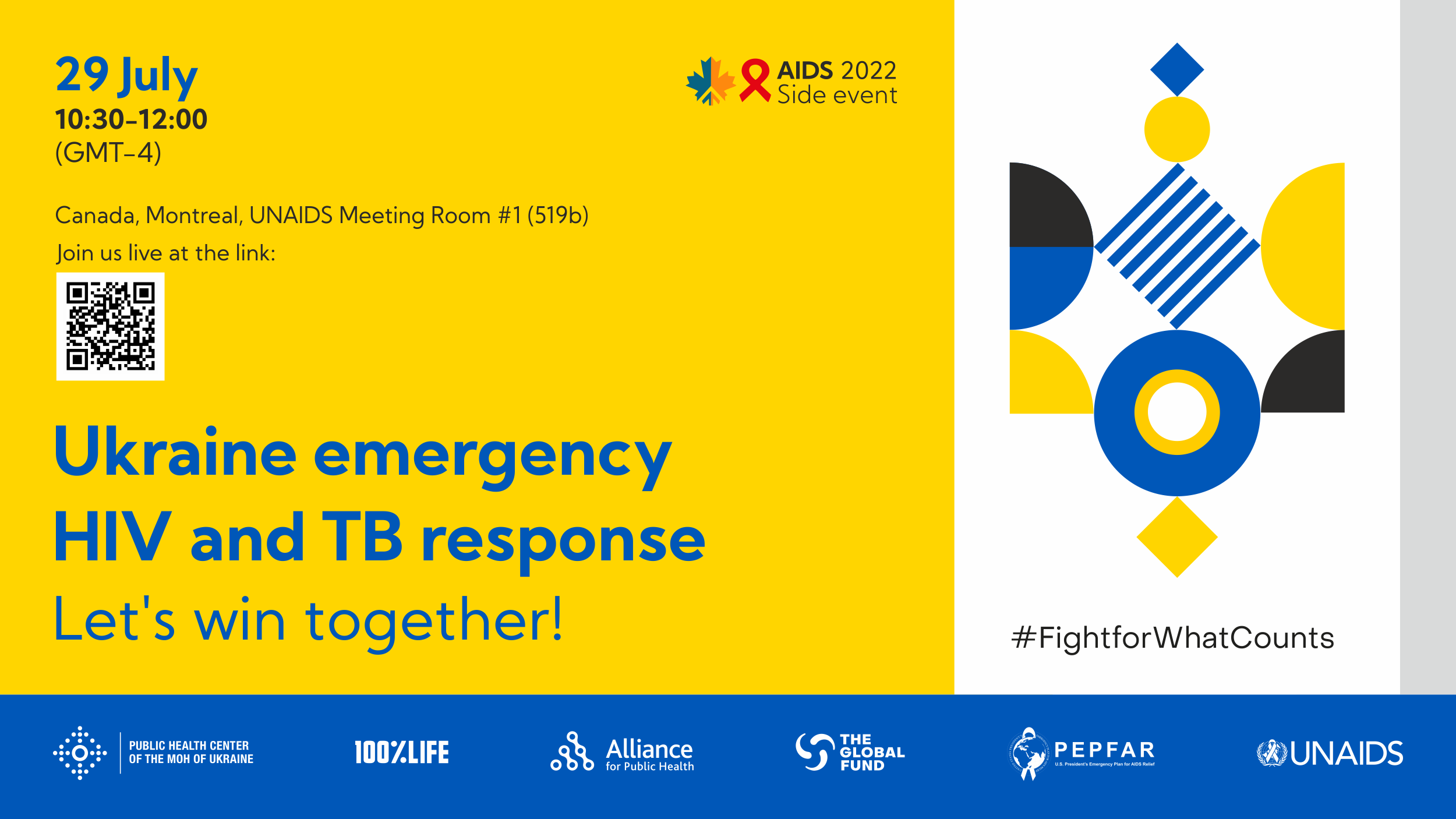
Contact for media: Inna Gavrylova, Senior Communications Manager, Alliance for Public Health, gavrylova@aph.org.ua
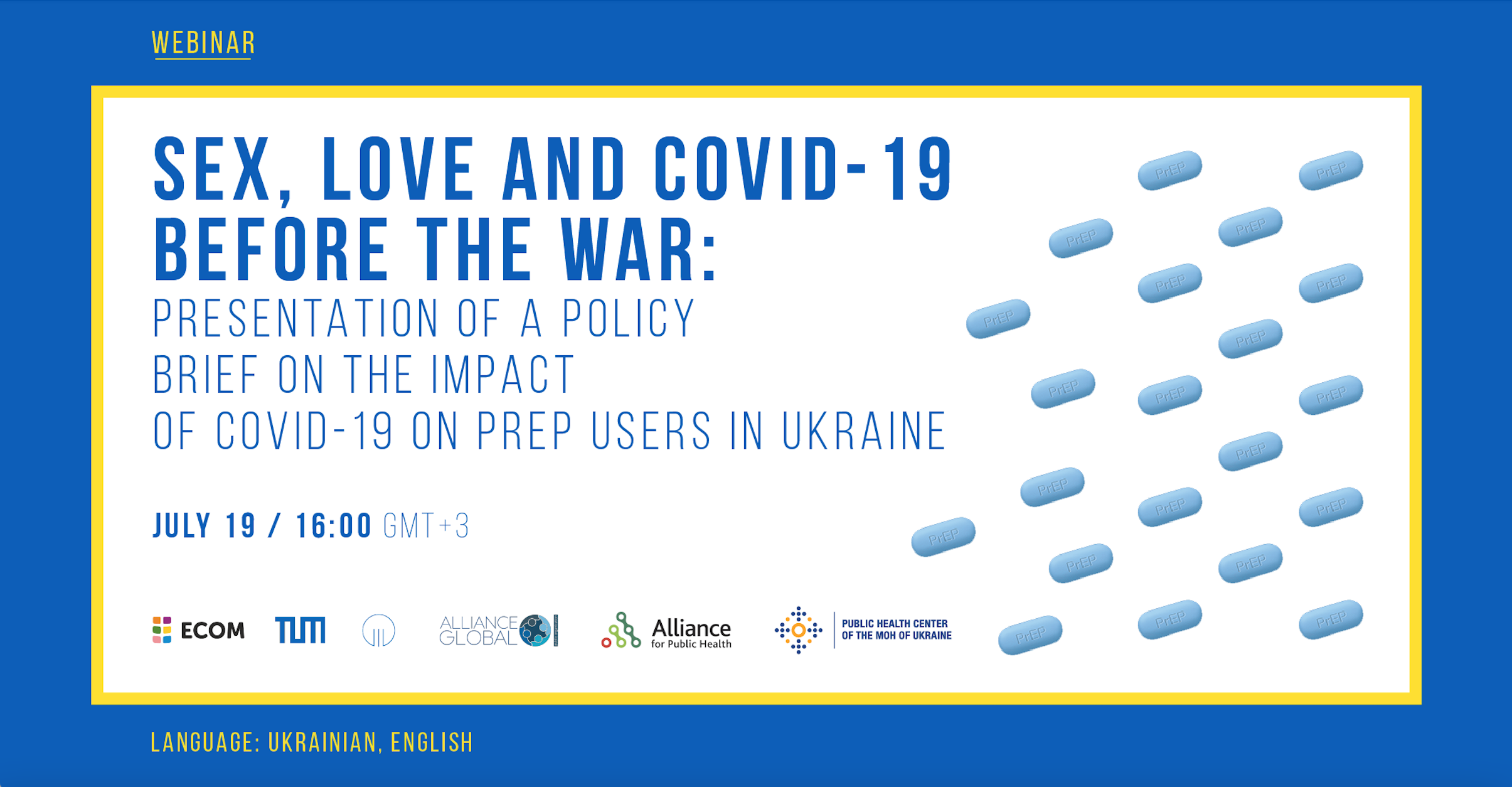
The webinar program:
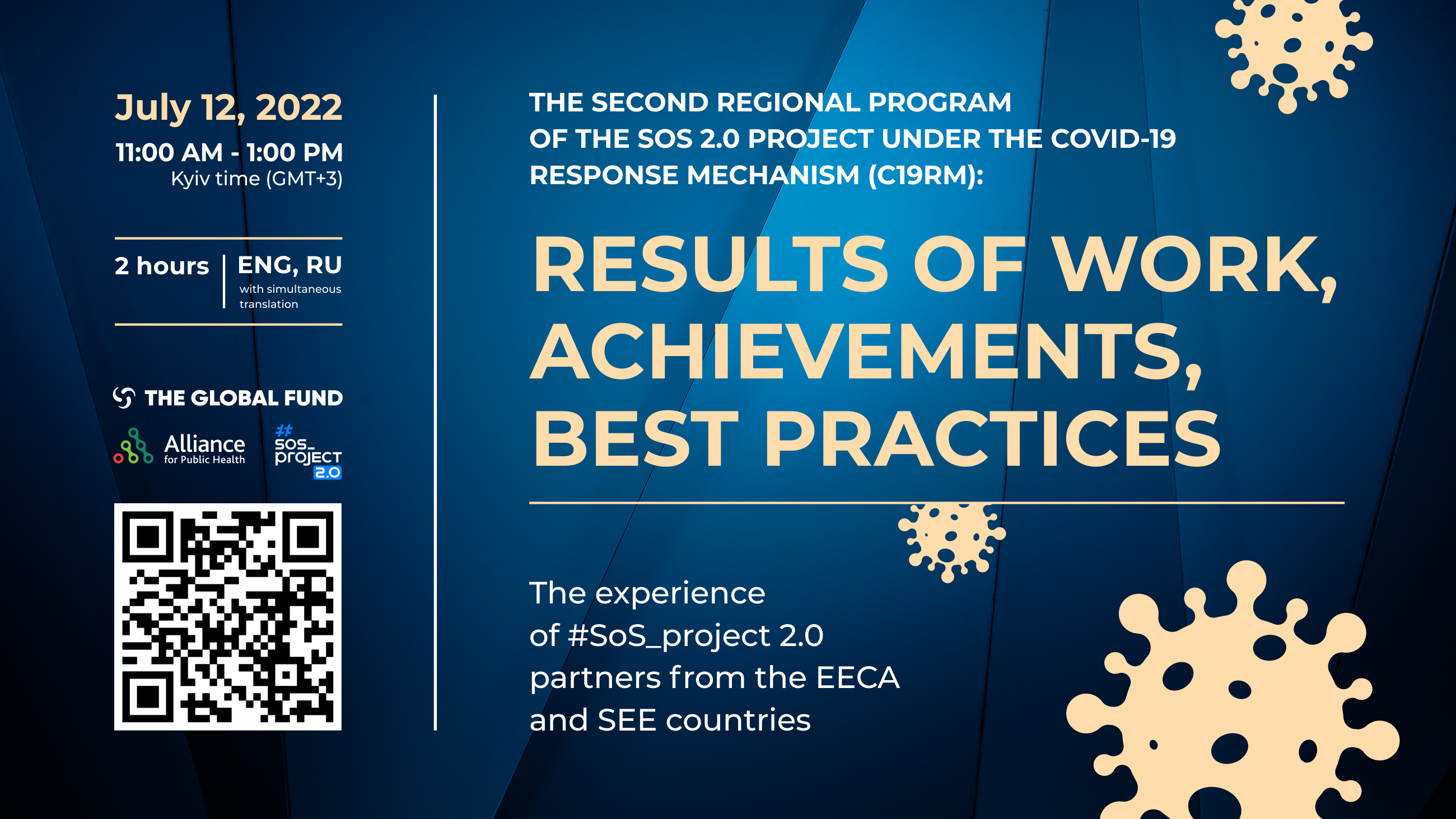
We are pleased to invite you to the webinar ” The second regional program on COVID-19 of the SoS 2.0 project under the COVID-19 response mechanism (C19RM): results of work, achievements, best practices”
Date: July 12, 2022
Time: 11 am – 1 pm Kyiv time (GMT+3)
Join: https://bit.ly/3av14dz
The purpose of the online webinar is to present the results of the work of the second regional program on COVID-19 of the SoS 2.0 project within the framework of the COVID-19 response mechanism (C19RM), which was implemented by project partners in the countries of the EECA region.
Languages: Russian and English (with simultaneous translation)
Presenters
11:00 – 11:10 Welcome and introductions
– Moderator, Nadia Yanhol, Alliance for Public Health, #SoS 2.0
11:10 – 12:55 Presentations and discussions: results of work, achievements, best practices
12:55 – 13:00 Closing remarks